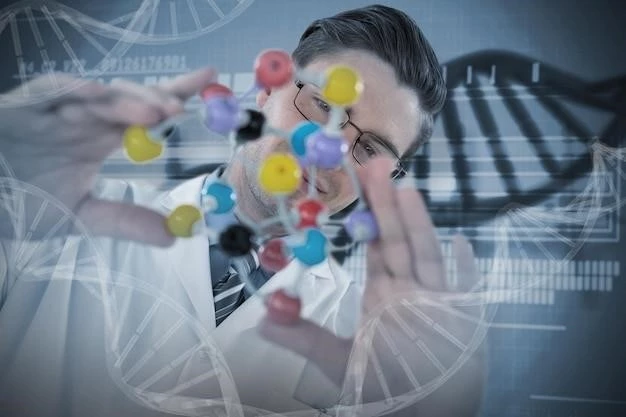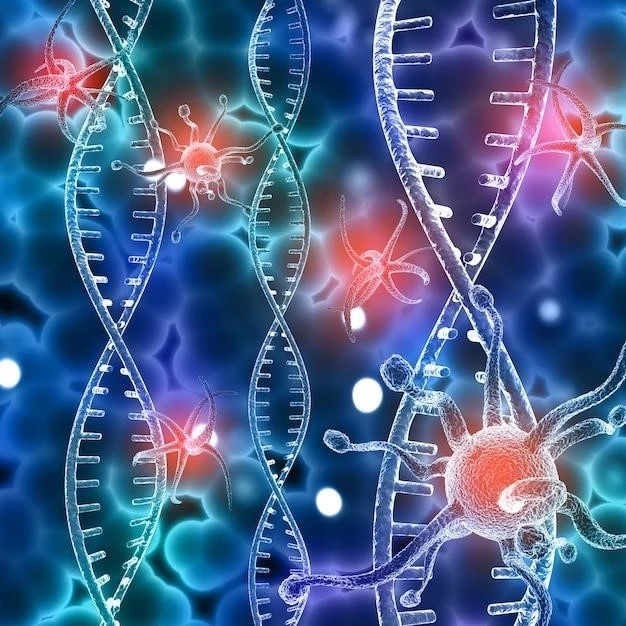Understanding Chromosome 22 Trisomy Mosaic
Explore essential aspects of Chromosome 22 Trisomy Mosaic, including causes, symptoms, diagnosis, testing, treatment, prognosis, genetic counseling, research advances, support services, and its impact on development and quality of life․
Causes and Symptoms of Chromosome 22 Trisomy Mosaic
Chromosome 22 Trisomy Mosaic occurs when there is an extra copy of chromosome 22 in some of the body’s cells․ This genetic condition can lead to a range of symptoms٫ including developmental delays٫ intellectual disabilities٫ growth delays٫ distinctive facial features٫ heart defects٫ and skeletal abnormalities․ It is important to be aware of these potential signs and symptoms to seek early intervention and appropriate medical care․

Diagnosis and Testing for Chromosome 22 Trisomy Mosaic
Diagnosing Chromosome 22 Trisomy Mosaic typically involves genetic testing, such as chromosomal microarray analysis or karyotype testing․ These tests can identify the presence of an extra chromosome 22 and the mosaic pattern in cells․ Early diagnosis is crucial for implementing tailored interventions and support․ It is advisable to consult with a genetic counselor or a healthcare provider experienced in genetic conditions to discuss testing options and interpret results accurately․
Treatment Options for Chromosome 22 Trisomy Mosaic
When addressing Chromosome 22 Trisomy Mosaic٫ treatment focuses on managing symptoms and supporting overall health and development․ Depending on individual needs٫ interventions may include early intervention programs٫ physical therapy٫ speech therapy٫ occupational therapy٫ educational support٫ and medical management of specific conditions like heart defects or skeletal problems․ Collaborating with a multidisciplinary team of healthcare professionals can help tailor a comprehensive treatment plan to optimize the individual’s well-being and quality of life․
Prognosis and Long-Term Outlook of Chromosome 22 Trisomy Mosaic
The prognosis for individuals with Chromosome 22 Trisomy Mosaic varies based on the severity of symptoms and individual health factors․ Early intervention and comprehensive care can significantly improve the long-term outlook․ Regular monitoring by healthcare providers, adherence to treatment plans, and consistent support from caregivers and specialists are essential for addressing challenges and maximizing potential․ Genetic counseling can also provide valuable guidance on managing the condition and planning for the future․ Stay informed, proactive, and engaged in ongoing care to promote the best possible outcomes․
Genetic Counseling for Individuals with Chromosome 22 Trisomy Mosaic
Genetic counseling plays a crucial role in supporting individuals and families affected by Chromosome 22 Trisomy Mosaic․ A genetic counselor can provide information on the condition, discuss testing options, interpret results, and offer guidance on available resources and support services․ Counseling sessions can help individuals understand the genetic basis of the condition, address concerns about inheritance risk, and assist in navigating complex medical decisions․ Seeking genetic counseling can empower individuals to make informed choices about their healthcare and family planning․
Research Advances in Understanding Chromosome 22 Trisomy Mosaic
Ongoing research into Chromosome 22 Trisomy Mosaic focuses on enhancing our understanding of the condition, identifying potential treatment approaches, and improving outcomes for affected individuals․ Scientists and healthcare professionals are exploring genetic mechanisms, molecular pathways, and cellular interactions related to this chromosomal abnormality․ Stay informed about the latest research findings and clinical trials to access cutting-edge interventions and contribute to the advancement of knowledge in this field․ Collaborating with medical professionals and participating in research initiatives can potentially shape the future of care for individuals with Chromosome 22 Trisomy Mosaic․
Support Services and Resources for Those Affected by Chromosome 22 Trisomy Mosaic
For individuals and families impacted by Chromosome 22 Trisomy Mosaic٫ accessing support services and resources is essential for comprehensive care and emotional well-being․ Seek out specialized centers٫ advocacy organizations٫ and online communities that offer information٫ guidance٫ and a supportive network․ Connect with local support groups to share experiences٫ access educational materials٫ and find assistance in navigating healthcare systems․ Utilize available resources to empower yourself٫ gain knowledge٫ and build a strong support system that can facilitate the journey with Chromosome 22 Trisomy Mosaic․
Impact of Chromosome 22 Trisomy Mosaic on Development and Quality of Life
Chromosome 22 Trisomy Mosaic can significantly impact development and quality of life, leading to physical, cognitive, and emotional challenges․ Individuals may face difficulties in learning, communication, and daily activities․ It is crucial to provide early intervention, individualized support, and access to therapies to optimize developmental outcomes․ Emphasize creating a nurturing environment, fostering independence, and promoting social connections to enhance quality of life․ By focusing on strengths, celebrating achievements, and seeking appropriate accommodations, individuals with Chromosome 22 Trisomy Mosaic can lead fulfilling and meaningful lives․
